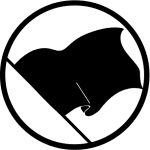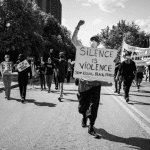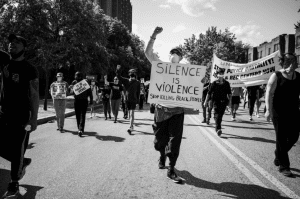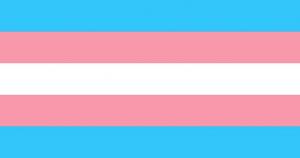President Trump recently tweeted that he’s going to designate antifa a terrorist organization. Plenty of misconceptions about antifa have been in the air for years anyway; the very word makes it sound like a gang or a political party, when in fact it’s just an abbreviation of the word antifascist. (1) Being anti-antifascist sounds an awful lot like being a fascist, but let’s ignore that for the present.
I’ve decided to do a quick write-up to dispel three big myths about antifa. If you’d like a more in-depth look, I can hardly recommend Philosophy Tube’s video on antifa highly enough.

1. Antifa are terrorists.
Terrorism is a word that usually lacks a clearly defined meaning, beyond “violence meant to intimidate people into complying with the terrorist’s goals”—a description that applies just as much to law enforcement and the military as it does to ISIS. Generally, terrorists want three things: a political response (just like any political actor), a reputation (which is why they will take credit for acts of violence, sometimes even falsely), and symbolic revenge for some perceived injury (which is why they choose not only violence but specifically spectacular violence). This third criterion is especially pertinent; the 9/11 hijackers targeted the WTC and the Pentagon not because the individual people in them had hurt them as individuals, but because they symbolized American economic and military dominance.
Now, antifa are interested in a political response: they want to shut down fascism. How much they want a reputation doubtless varies, group to group and person to person. However, antifascist activism is not about revenge. It is directed not against symbolic targets, but against people who are actually building fascist structures and doing fascist things, like attacking racial, sexual, or religious minorities; and if and when the fascists stop doing those things, antifascists generally leave them alone.

2. Antifa are violent.
This is less false than the other two, but, as a talking point, it’s designed to give a misleading impression. It implies that antifa are primarily violent, prefer violence to other means of getting their way, or something along those lines. This isn’t true at all. Antifascists will sometimes use violence, both in self-defense and in defense of others; but the point of antifa activism is to stop the spread and power of fascism.
That comes in a lot of forms, most of which aren’t violent and some of which aren’t even confrontational. Sending a mole into a fascist group online to identify and expose fascists to the public is a form of nonviolent antifascist action; so is phoning a hotel or a convention center to inform them that an event they’re hosting is being run by fascists, in order to get the event shut down. Running an after-school program to help prevent teens from being recruited by fascist groups is a form of antifa activism that doesn’t even directly confront fascists, and so is running a voter registration drive that helps disenfranchised communities claim their democratic voice.
But antifa can include violence. Trying to obstruct a neo-Nazi march can lead to violence, whether from antifascists physically blocking the Nazis or from Nazis attacking the antifascists. Destroying the sound system at a fascist political rally could arguably be classified as violent. Pulling attackers off of a victim could easily involve violence, or be described that way, especially if the attackers are cops. Whenever an ideology, like fascism, explicitly advocates targeted hatred and its adherents often put that hatred into practice, defensive violence against that ideology will frequently occur—and it’s a completely false equivalence to say that defensive violence is just as bad as the original aggression. (2)

3. Antifa are a group.
Antifa is not even a thing—not the way the police or the Democratic Party are things. You can’t “join” it, or be a “member,” or anything like that (media that use words like these are either misinformed or lying). Antifa is, simply, active opposition to fascism. Now, that does imply certain viewpoints, priorities, and methods; and obviously people can form groups that are philosophically antifascist, and even perhaps use the word in their names. But antifa, as such, is not an institution or an organization.
Which provokes the question of why and how Donald Trump wants to designate antifa a terrorist organization. The obvious reason is that he doesn’t know any better. A more relevant reason might be, if a nebulous non-organization is declared terroristic, the Trump administration can then turn that policy on any political dissident, anyone who vocally or visibly advocates against fascism, or even just anyone who opposes the administration. The blueprint for demonizing and disposing of political inconveniences is thus drafted, and ready to be applied at will.
(1) It may seem silly to abbreviate a word by a single syllable, and it is. However, I gather the abbreviation itself goes back to German activism, and was originally coined to refer to the group Antifaschistiche Aktion (i.e. Antifascist Action), later coming to be used about antifascists more generally. And abbreviating a phrase by six syllables does make more sense.
(2) It does not follow that all violence done in the name of antifa is therefore legitimate. Not only is plenty of violence falsely attributed to antifa, but it’s absolutely possible for violence that started out in self-defense to go too far; there are also real discussions to be had about what is and isn’t self-defensive in some circumstances. But these secondary questions should not distract from the point, which is that equating self-defense with unjust aggression is wrong.











